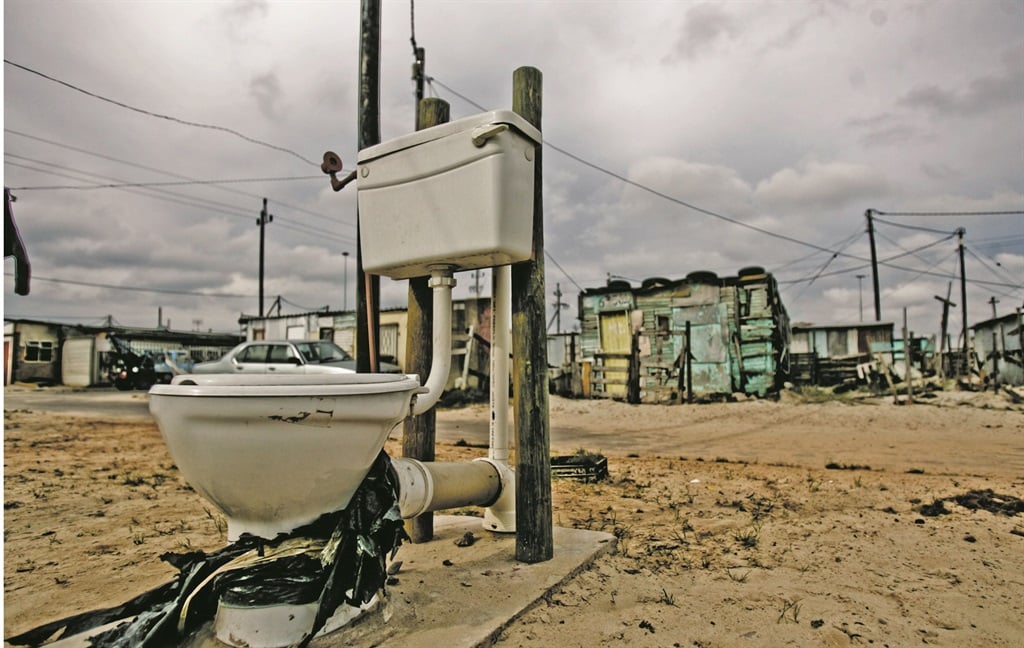
In South Africa, the use of toilets as a tool for political leverage is nothing new. Ablution facilities – or the lack thereof – have been used over the past few years as a political metaphor for, and a benchmark of, service delivery.
The Western Cape, in particular, has spawned multiple toilet wars. In 2011, the DA was brought to book for providing only unenclosed toilets in Makhaza informal settlement.
Thereafter, in 2013, excrement was thrown inside Cape Town International Airport, as part of a service-delivery protest. Last year, excrement was again thrown – at the statue of Cecil John Rhodes at the University of Cape Town (UCT), sparking the #RhodesMustFall movement.
However, while South Africa’s toilet wars are rooted in service delivery, another lavatory war is raging in the US – and it has already filtered into our existing toilet battles.
This year is proving to be a watershed year in American politics.
Not only has Republican contender Donald Trump emerged as one of the biggest disruptors of the political arena, but the question of gender-neutral toilets for transgender people is developing into a legal battle which, analysts say, could reshape civil rights in America.
In what is turning out to be quite a ripple effect of the right to use a toilet, the brouhaha began when US President Barack Obama’s administration sent a letter to all public schools across the US, ordering them to allow transgender students to use the bathroom of their choice – according to the gender they identify with, rather than their biological gender, should they identify differently.
This federal decree was in reaction to a raft of proposed “bathroom bills” in various states, opposing the concept of gender-neutral bathrooms.
The war zone is currently centred in the state of North Carolina, where its governor, Pat McCrory, sued the federal government after receiving Obama’s letter.
The US justice department immediately responded with a countersuit, setting up an almighty legal battle which, say some observers, will affect American civil rights should this escalate to the Supreme Court – because discrimination against transgender people could be viewed as a form of sex discrimination.
In addition to challenging people’s perceptions of social norms, this debate is exposing deep-rooted prejudices as well as misperceptions. While 57% of Americans oppose these discriminatory bathroom bills, the conservative citizenry are reacting just as vocally.
Opponents voice their antipathy along these lines: “Sexual predators will now be given free rein to dress up like women so they can stalk female bathrooms.”
This has given rise to the following counterargument: “If sexual predators wanted to dress up like women simply to gain access to female bathrooms, they would have done so already – they do not need this legislation to do so.”
Despite the controversy, what emerges from this debate is a deeper understanding of transgender people – a community that has, until now, been sidelined and persecuted and, most importantly, is deeply misunderstood. In the US, one in four transgender people are assaulted and 41% attempt suicide.
As a trendspotter, I pride myself on grappling with ahead-of-the-curve concepts, be they technological or radically shifting social norms. But I have to admit that the past six months have served up an enlightening learning curve – and I have Caitlyn Jenner to thank for it.
Love or hate her, Caitlyn – through her reality TV show, I Am Cait – has clarified and defined the stark difference between gender orientation and sexual orientation. It is an important distinction and, if misunderstood, feeds into the prejudice and misperceptions that those people opposing gender-neutral bathrooms harbour against this community.
In a patriarchal country such as South Africa, where homosexuality is still not widely accepted – despite a Constitution that protects the rights of gay people – the nuances between gender orientation versus sexual orientation could easily be lost in the blur of prejudice.
But there is hope.
In 2014, UCT introduced gender-neutral bathrooms on campus. At the time, Nthabiseng Mokoena, the advocacy coordinator for Transgender and Intersex Africa, said: “The difficulty to accept this concept is a symptom of society’s inability to deal with people whom they cannot place within its constructed heterosexual and gender binary norms.”
Now it seems the world is being forced to deal with this paradigm shift.
This year, Wits University is also intending to provide gender-neutral bathrooms on campus. Alaine Marsden, president of activist group CTRL ALT Gender, said: “Wits has a history of transgender people being attacked in bathrooms. It is for this reason that these spaces are entirely necessary.”
Some may argue that we need to provide basic services to all before we tackle seemingly “First World problems”. But if we are fair, equitable and empathetic in all processes of providing basic needs, we will have less to revisit and correct in hindsight.
For those opposing the need for gender-neutral bathrooms, I will leave you with comedian Trevor Noah’s take on the topic: “Zero point three percent of the population is transgender, so the chance of you bumping into a transgender person in a bathroom is almost 0% – but the chance of a transgender person needing a bathroom is 100%.”
Chang is the founder of Flux Trends. For more trends, visit fluxtrends.com




 Publications
Publications
 Partners
Partners








